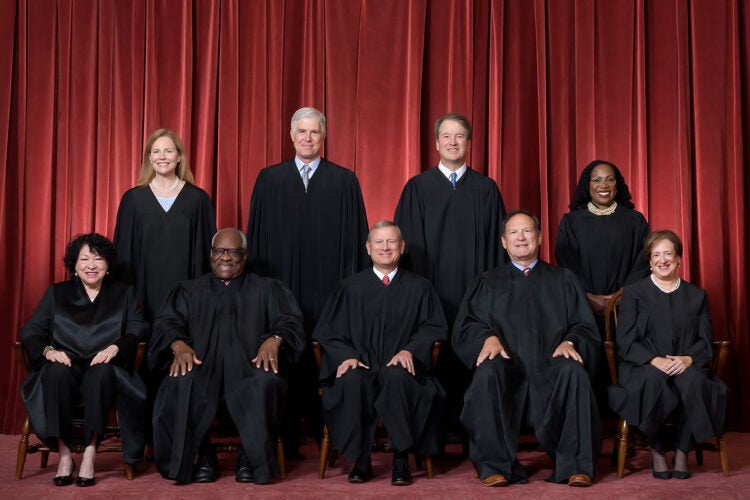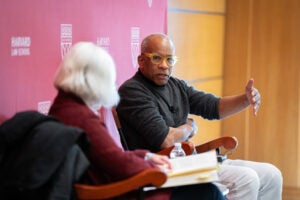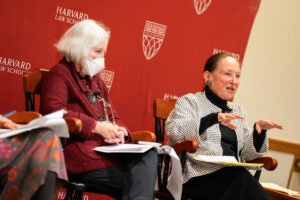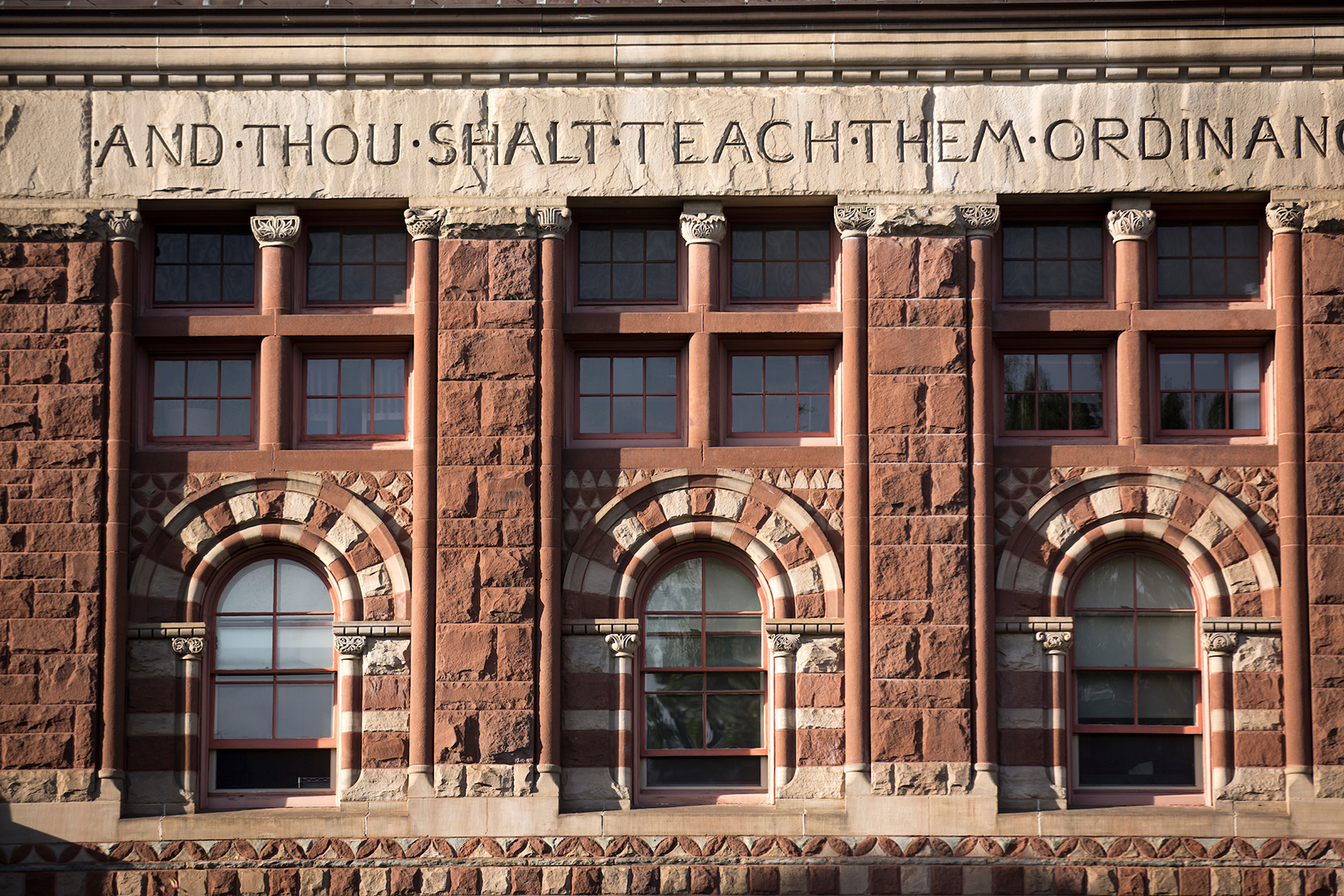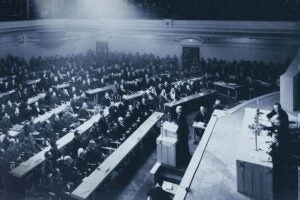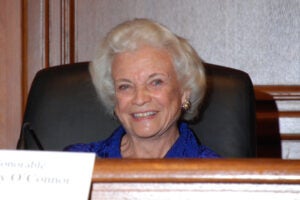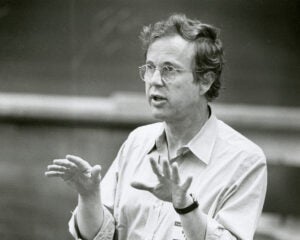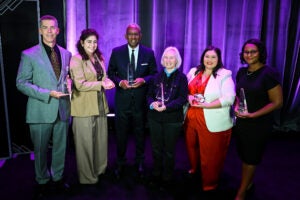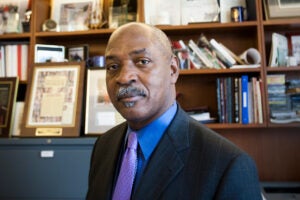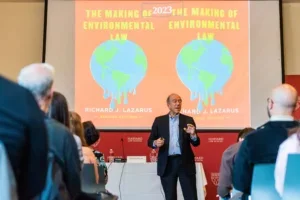People
Martha Minow
-
Professor Randall Kennedy sits in conversation with Martha Minow on his book of essays on a broad range of controversial topics.
-
With the Oscars upon us, Harvard Law faculty members share their favorite legal movies, tv shows, and characters.
-
Minow, Abella discuss algorithmic fairness and the US justice system
February 29, 2024
Harvard Law experts Martha Minow and Rosalie Abella argue that predictive algorithms and AI could amp up and amplify existing inequities.
-
Obtaining Justice Without Demonizing Your Enemies: Martha Minow
February 15, 2024
In the age of growing polarization, how do you tackle injustice without demonizing your enemies? Former Harvard Law School dean Martha Minow tackles that question…
-
The trouble with thinking we’re right
January 16, 2024
The dinner table conversations in Martha Minow’s home have, for decades, revolved around the big issues of the times: civil rights, the women’s movement, the…
-
Harvard Law School Professors John C.P. Goldberg, Vicki C. Jackson, and Martha Minow have been recognized by the Association of American Law Schools (AALS) for their excellence in legal education.
-
Scholars reflect on the Universal Declaration of Human Rights 75 years after UN adoption
January 2, 2024
As the Universal Declaration of Human Rights — adopted by the UN in the wake of World War II — turns 75, Harvard’s Carr Center for Human Rights Policy marks the anniversary with a publication weighing the history and future of the human rights movement.
-
Remembering Justice Sandra Day O’Connor (1930-2023)
December 5, 2023
Supreme Court Associate Justice Sandra Day O’Connor, the first woman to serve on the Supreme Court, died Dec. 1. She was 93.
-
Free Speech Experts Denounce Trump In Colo. Ballot Suit
November 30, 2023
A group of First Amendment experts Wednesday urged Colorado justices not to let Donald Trump use free speech as “cover for insurrectionist violence,” according to…
-
In 2010, Derrick Rossi and Ken Chien, then colleagues at the Harvard Stem Cell Institute, found themselves attending another coworker’s wedding. During the reception, after…
-
Gerald E. Frug: 1939-2023
November 14, 2023
Gerald E. Frug ’63, a pathbreaking scholar who reinvented the field of local government law, and a superb teacher and mentor, died Nov. 7 after a long illness. The Louis D. Brandeis Professor of Law Emeritus at Harvard Law School was 84.
-
Minow awarded Freedom of the Press Career Achievement Award
October 20, 2023
Martha Minow, 300th Anniversary University Professor at Harvard and former dean of Harvard Law School, was honored with a Career Achievement Award by the Reporters Committee for Freedom of the Press.
-
‘Without Precedent: The Supreme Life of Rosalie Abella’
October 11, 2023
On Oct. 5, Harvard Law School hosted a special screening of "Without Precedent," a documentary about the life of former Canadian Supreme Court Justice Rosalie Abella.
-
Two of the nation’s best-known legal scholars and authorities on the First Amendment joined in the defense this week of embattled Stanford University professor of…
-
Charles Ogletree Jr. : 1952-2023
August 5, 2023
Charles J. Ogletree, Jr. ‘78, or Tree, as he was affectionately known, the celebrated, influential, and beloved Harvard Law professor and civil rights scholar, died peacefully on August 4 in his home in Odenton, Maryland, from the natural progression of Alzheimer's disease.
-
Public Service Venture Fund selection committee members discuss Harvard Law’s student pipeline to public interest law
May 31, 2023
Recipients of Harvard Law School’s Public Service Venture Fund organization-based fellowships are making their marks all around the world.
-
She ran Harvard Law School and mentored future politicians. Now she wants them to get along
May 11, 2023
In February 2020, Martha Minow stepped up to the podium at a U.S. State Department conference to address a task force assembled by Secretary of…
-
‘Why is it so hard to make environmental law?’
April 18, 2023
Harvard Law School Professor Professor Richard Lazarus tells the story of challenges and hope inherent in environmental law.
